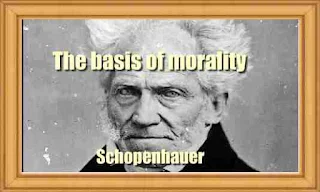The basis of morality
This translation was undertaken in the belief that there are many English-speaking people who feel more than a merely superficial interest in ethical research, but who may not read German with sufficient ease to make them care to take up the original.
The present Essay is one of the most important contributions to Ethics since the time of Kant, and, as such, is indispensable to a thorough knowledge of the subject. Moreover, from whatever point of view it be regarded, — whether the reader finds when he closes the book, that his conviction harmonises with the conclusion reached, or not; it would be difficult to find any treatise on Moral Science more calculated to stimulate thought, and lift it out of infantile imitation of some prescribed pattern.
The believer in the Kantian, or any other, basis of Ethics, could hardly measure the strength or the weakness of his own position more surely than by comparing it with the Schopenhauerian; while he who is yet in search of a foundation will find much in the following pages to claim his attention.
Those acquainted with the luminous imagery, the subtle irony, the brusque and penetrating vigour of the German, will doubtless admit that it is no easy task to reduce Schopenhauer to adequate English prose; and if this has been attempted by the present writer, no one can be more conscious than he of the manifold shortcomings discoverable.
But such as it is, the work is heartily offered to all who still follow the true student's rule, with the single hope that it may help, however slightly, to widen their knowledge, and ripen their judgment.
In 1837 the Danish Royal Society of Sciences propounded, as a subject for a prize competition, the question with which this treatise opens; and Schopenhauer, who was glad to seize the opportunity of becoming better known, prepared, and sent to Copenhagen, the earliest form of " The Basis of Morality." and won the prize.
Download 10.5 MB


